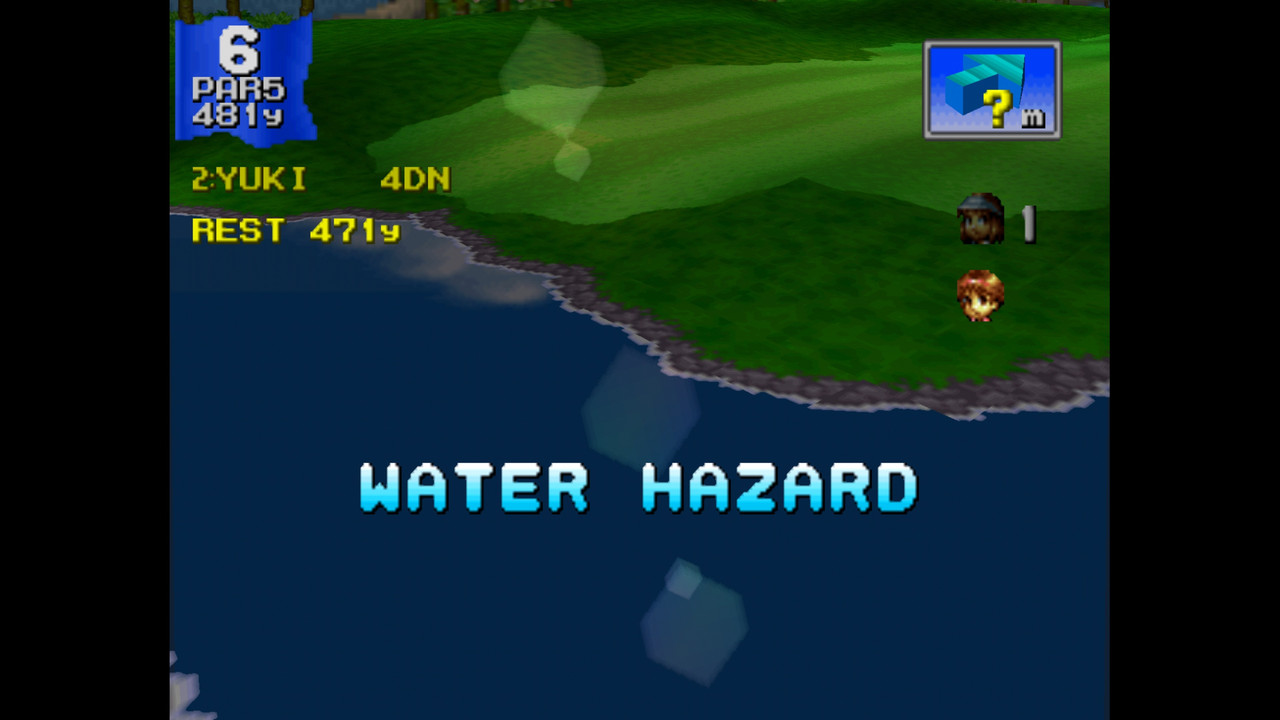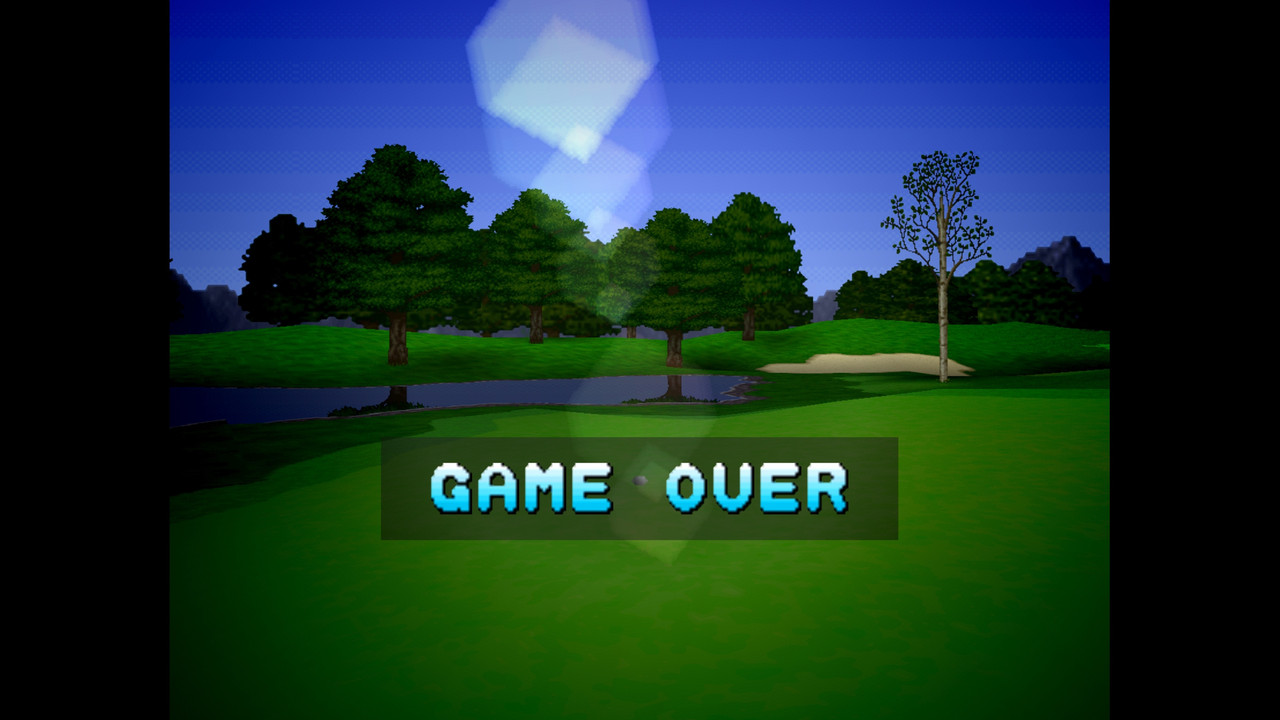Fawltea's Day Out
Dr. Fawltea had been looking forward to this day. After many many years of begging his wife, it was his day out—finally, some much-needed time to himself. An escape from the constant whining at home and from the Tekken Tag Tournament-obsessed, pop culture-addicted, wannabe Western “burgers” who discussed more philosophy than medicine, infesting the medical ward where he worked. Oh, would that he were like that man who was half jaguar, half human (or perhaps he was just wearing a mask?) and able to capture them in a throw and never let go, until their very life force was extinguished. Fawltea made a mental note of making sure to take one of these annoying idiots home one day, the one who knew how to do those never-ending grabs, so that his son could be taught a lesson, humbled into giving up video games and focusing on his education.
And speaking of education, he was responsible for their training, wasn't he? But they didn't seem to give a shit. Even when they talked ethics, it was more in relation to Ariana Grande, or Lana Del Rey who, in Fawltea's opinion, sounded more like car models.
He wondered why all of these popstars had such car-sounding names:
Ariana Grande – Corolla Grande
Lana Del Rey – Ford Del Rey
Taylor Swift – Suzuki Swift
Whatever happened to the good old days of names like Beyoncé and Lady Gaga? Nowadays you have people calling themselves Sabrina Carpenter, which in Pakistan would be considered a local carpentry business. Or Charli XCX, which just reminded him of the Punnett Square for color blindness and how XcX women were carriers. Is this why she calls herself that? She's colorblind? Brave, I suppose.
Fawltea made his way out of that godforsaken “It's a medicine ward where we do everything but practice medicine” that would've humbled even the harshest of administrators, wondering where his chums Frank and Joe Hardy (he had nicknamed them such because they reminded him of his favorite duo of adventurers) were; probably off on a grand adventure in the Margalla Hills, befriending a Snow Leopard and what not. Or possibly even gone to FATA and Balochistan, masquerading as locals to capture terrorists. In Fawltea's view, there was no timeline where these tigers among men would not have been recruited by the army in secret, maybe that's why they worked at the government hospital where no one knew who was where, as a deep cover.
As a matter of fact, they had both gone to the police hospital, just a few miles away from where Fawltea was currently, because funds were in short supply and the local blood bank proved a most amiable treasure chest if one only knew where to sell the stolen packs. Far from being secret agents, they would be more likely to sell the nation for some change.
He had only gotten as far as the emergency block, when once again, that annoying pest Gul Abad was waiting at the special entrance meant for ambulances, defibrillator in hand. He was a technician who pretended to be a cardiologist, and if recent rumors were to be believed, he claimed to have specialized in electrophysiology.
Of course, he was more like a lizard whose skin changed its color depending on where he was, in the ICU he was known as Gul Abad the intensivist, and he must've had many more roles besides that.
“For God's sake, Gul Abad, not every emergency case needs to be shocked.”
Gul Abad merely rolled his eyes. “You should be glad someone wants to learn, unlike all your other trainees. Anyways, what's the harm, all it does is analyze the rhythm and tell me if its shockable or not.”
Fawltea was in no mood to argue, and that last riposte was quite nasty, he was done for the day. He didn't care to tell Gul Abad that he was wasting precious seconds, especially when a patient arrived with bullet holes in his body, and Gul Abad would stop them at the entrance for “mandatory rhythm analysis.” Someday, he'll get his, thought Fawltea.
As Fawltea walked, he was ambushed by that which he feared the most, an army brat. For those not in the know, an army brat is the spawn of usually not one but two army officers, and crossing one in Pakistan can have disastrous consequences. This one, like all others, was beyond entitled.
“Dr. Fawltea, I was wondering, can I do open heart surgeries?”
You're a medicine trainee, you're not even allowed in one of the damn ORs – is what he wanted to say – but he also didn't want to end up in a black Vigo, vanished without a trace, lost to time, knowing full well his damn son would be playing video games without even batting an eye, not giving a toss. Possibly, he would even order a cake.
“I'll uh….I'll talk to the departmental chair, see if we can't arrange something, you are, after all, so damn talented. How about we start you off on something small, hmm, an appendectomy?”
She preened at the praise but there was also a smidgen of annoyance he could pick up on. “Appendectomies? Even Gul Abad does those, give me something serious to do, na.”
Somehow, the fact that Gul Abad had started doing surgeries did not surprise Fawltea one bit. No wonder post op infection rates were peaking. To make matters worse, that na was not a friendly na, it was the passive aggressive na, lord help him.
“How about some cardiac catheterization to start off with? We can even mark it down as part of your future cardiology rotation, change a few dates around, the usual.”
She glared at him as if he owed her a few thousand dollars, or even a kidney, before flashing a smile.
“Oh look, the Vigo's here to pick me up. I do hope I'll get to do that open heart surgery, Dr. Fawltea, I simply won't settle for anything less. D'you know, I never noticed just how fast these things are, until today. Why, you could be off in a flash.”
She didn't even bother to look back at Fawltea as she made her way to the Vigo, knowing full well he was probably drenched in sweat and his heart was off its rocker due to anxiety.
In a world where Gul Abad did appendectomies, Fawltea reasoned, surely a qualified medical trainee doing an open heart surgery wouldn't be so bad...That is what government hospitals were for, after all, training dens that churned out butchers at the expense of the poor, uneducated masses.
As Fawltea got to his car, the exit was blocked by a BMW. How typical. And he knew well who that BMW belonged to, like all his demons, this car too had ties to the halls of power. It belonged to some new fangled spoiled navy brat (because army and air force brats weren't enough demons to face, apparently) who had only just started her training at the ripe old age of 33, that too due to nepotism and without passing the first part of the fellowship exam. After acquiring her degree, she'd gone on a world tour for the better part of 7 years, as only the elite could afford to, and was now finally ready to start her life, without even going through any of the hurdles one usually does. And the fact that her training was stipendless bothered her not a bit, for her pocket money was more than what Fawltea made in 3 months.
In fact, now that Fawltea thought about it, this very BMW was something he'd never be able to afford, even if he saved up his whole life. Suddenly he realized why that forlorn, vampire-esque trainee whined about poverty so much. He was the only serious trainee and regular fixture here, though he was not smarter than the doctor that reminded him of Veronica Mars, who while being a genius with insane medical knowledge, cared not an iota to lift a finger because of her “It's better to ease a poor person's suffering by letting them die, they have no future here, this country has no future” world view, Fawltea wondered if Dr. Veronica Mars would also let the emo trainee die, were he to end up admitted here with a serious illness. Then again, she had told Fawltea to drive his car off the hospital terrace when she'd asked him how much he'd saved up for the upcoming rupee crash, so the answer was probably in the affirmative.
For once, Fawltea felt the pain of being poor. He too wanted the very best in life, but could not afford it, it had been his dream to drive a Ferrari, and it would remain so until the day he died. Unless, of course, one of these rich brats invited him to drive theirs some day. He could only hope. He had once dreamt of owning a Bugatti, or a Lamborghini, or even one of the more higher end Ferraris but that was 1998, before the country's first default. Then, he had lowered his gaze to just owning any Ferrari, no matter how cheap, that was the second default. Now that Pakistan had defaulted thrice, he was merely hoping he'd get to drive one someday. O Hope, he told himself, no wonder you were part of Pandora's Box.
Snapping out of his thoughts, he called the naval brat, but of course she was not picking up. Then, because it'd be too pathetic if he went looking himself, he called Gul Abad, who answered almost immediately. “Gul Abad, I need you to find that BMW brat, the one who brags about her damn world tour, no doubt paid for by our damn dime.”
Gul Abad spoke as if he were this serious, intense professor: “Oh, sorry I can't help you, I'm teaching the medical students how to do pericardiocentesis. And it's not going very well. And stop being petty, this is why I keep telling you to stop paying those taxes like me, gullible man.”
Fawltea could hear worried whispers, a cry or two, but before he could say anything, Gul Abad had terminated the call.
Oh well, I have other cards to play, thought Fawlty, and called his only serious trainee, the depressed fellow who looked like he hung out at graveyards. Legend has it that the reaper saw his face and spiraled into depression himself, and for just one day, no one died.
“Yes, I need you to find that BMW brat like yesterday, I'm losing precious time here.” The fellow simply said “Yes, sir” and terminated the call, this is what Fawltea liked about him, he knew his place, and he obeyed without question. Oh, to have a few more like him.
Fawltea stood there, waiting. 5 minutes passed, 10 minutes passed, he sat down on a bench and started looking at his phone. He had left the ward at 1 PM, it was somehow 2:50 already, oh well, he had 5 more hours to himself, and 10 minutes too if it came to that.
At 3:30 he could wait no longer, and called the grave-dweller.
“You seriously can't find one damn doctor? Where can she even be?”
His voice, as beaten as ever, came out softly. “I've searched our ward, no one has seen her sir. Then, I searched the 2nd floor, and even the 3rd. Just 9 more to go...”
“You buffoon, just go to the security room and ask to have a look at the cameras, God, you people are so inefficient.”
20 more minutes passed, and no update, Fawltea sent him an angry voice message, telling him to start by reviewing footage from the car parking.
3 minutes later, he got a call.
“Sir she seems to have left the premises with a guy, it looks like, she's not here in the hospital.”
“Ugh, sod this, I'll just get a damn cab. And tell Gul Abad to cut the brakes on this damn BMW, sod her.”
“Not a good idea sir, he'll just go to her and tell her you said this, sell you out.” he replied.
“Sod you all.” Fawltea said angrily, and started to walk towards the exit gate. He had only just passed the CCU, when he saw Gul Abad teaching 2 medical students the art of reading an ECG. There was no one else in the damn ward, not a single doctor.
“They left you in charge, Gul Abad?”
“Of course sir, they said you can read ECGs, know how to load MI patients, and do pericardiocentesis if need be, and are able to use the defib, they said I'm a cardiologist already. It's Eid, all the trainees went to their villages. They said I can practice central lines while I'm here, and if need be, use the cath lab. Doctor Zain said it's as simple as driving through a tunnel, I just have to push the catheter through.”
“Doctor Zain is a damn pathologist, he's never even seen the damn inside of a cath lab, let alone a procedure. Do you even know what a bloody guide wire is?” Fawltea asked, knowing fully well he was only gonna be more annoyed. At this point, Fawltea's mustache seemed like it was going to grow a pair of beefy arms, and punch Gul Abad's lights out.
“No, but there's nothing like doing, to learn. Experience is the best teacher. And you are just jealous of him because he is a total rockstar and fast bowler, and the nurses don't even look at you while they go all the way to the lab to flirt with him. No one buys your lopsided combover, Dr. Fawltea.”
The mustache deflated faster than the tires of a Suzuki Mehran drifting through glass on one of those roads near Karkhano Market, where all the glass factories had decided to form a giant glass factory behemoth, King of Glass GaoGaiGar as the locals called it in fact, they did not call it such a thing, yours truly is embellishing here
“Goddamit. Goddamn you all. Sod you lot. Sod this CCU, I'll have every damn trainee terminated.” Fawltea's patience for these hooligans, the so called “doctors” of today had run dry.
“Not a good idea, sir, three of them are related to the Corps Commander...” Gul Abad said in a smug tone, and suddenly Fawltea found his patience again. For to Fawltea, that word might as well have been Corpse Commander, bringing forth vivid hallucinations of a rogue lich general with an army of corpses all storming him.
Fawltea hated the milk of human kindness, the very little that remained in him, because it compelled him to stay. He called his graveyard shift crypt dwelling trainee again, and decided to do a proper round. There was also a new fellow, a house officer who didn't know how to tell a patient's pulse, let alone what a beta blocker was, the chief minister's nephew, because of course he was. Gul Abad had also called his friend the janitor Fazal Amin, who was apparently an “expert at calculating doses” because he was just really good at Math, beyond that he had no use. He was also really good with his hands, apparently.
He explained, to these three stooges and that one vampire wannabe – a total emo if he ever saw one – each case, its management protocols, possible complications, and what to keep an eye out for, as best he could. There were 12 beds, and it took Fawltea 15 odd minutes to cover each. Fawltea had lost 3 more precious hours of his time. It was now 7 PM, and he only had one hour left.
It's Eid, dammit, I can't waste this day, I simply must do something. Fawltea ran, ran outside to get a cab, he had but crossed the building when he saw the BMW leaving, finally, oh thank God. He ran back to his car, and turned the keys. Ignition.
Only there wasn't any.
No, he had to make this day count, he would fight his compulsion to troubleshoot, test and diagnose, to repair, he would not waste his only day off, he would take a cab and go for a stroll and dinner at the nearby golf club, at the very least, and possibly even play a round or two, if they let you at night, for once he would spend his money and treat himself, his wife never agreed to give him any time off, he had to make this count dammit, he had to...……
“Say Gul Abad, you wouldn't happen to know how to fix cars, would you?”
“As it happens, sir, Fazal Amin here moonlights as a mechanic....”
And so they made their way to the car, Fawltea, Fazal Amin, Gul Abad, and even the emo trainee.
“Hachi Go...” said the trainee, and popped the hood, getting to work before Fazal could even understand what he had said.
Well, at least I found my new mechanic, thought Fawltea, taking the cigarette Gul Abad had offered. He had never smoked in his life, but he wanted to get something out of this day, at the very least. The damn thing tasted like melted tires, but he continued to blow smoke, between coughs. He wondered if maybe this is what he needed to be cool, damn Zain and his damn rockstar looks. No one should have a full head of hair and look 30 at 50, Fawltea felt. Damn you, Telomeres, and damn you Free Radicals, and damn you especially, Apoptosis. Damn you, Anne Hathaway, for being a vampire and hiding the secrets of immortality from the rest of us.
He couldn't believe he was driving home half an hour later, his car felt better than ever. Fazal Amin was magic, the garage he worked at was a mere 5 minutes away, and that coupled with emo mister's knowledge had led to his car getting a shot of adrenaline. The two crazy geniuses were talking about how they'd managed to squeeze in an automatic transmission with close gear ratios for a more sporty feel, whatever that meant; Fawltea wasn't really paying attention to his emo trainee's infodump, all he heard was 8-6 or something.
Fawltea was cruising, it was as if he was young again. Zain was right there, right next to his car in his stupid 2007 Civic, Fawltea hit the accelerator hard, showing him the true power of his unreasonably maligned car, for that moment he was not Dr. Fawltea, Internal Medicine Specialist who fancied himself a better Cardiologist than anyone else in Peshawar, he was Michael Schumacher, making lesser drivers taste his tire's dust. All he needed was some rain, and for Zain to slip, crash and burn, but alas.
As he continued to blitz through Mall Road pretending it was Need for Speed 1 – for Fawltea never did like 2 – the traffic light turned red, Fawltea hit the brakes repeatedly but the car just kept going.
“Oh well, if Gul Abad can do appendectomies, maybe I can drive home without brakes,” he reasoned. He knew the coin of fate had fallen on tails far too many times for one day, and now it was time for heads.
Just then, a BMW suddenly veered onto the road.
“Well, shit.”

 Yes, this is a thing, Cannabis addicts found aplenty in our government hospitals and rehabilitation centers, have started to prefer these. The poor fellows having only just left Cannabis, get hooked on these instead. The economics of this business are quite sound, Lizards being easy and free to source in numerous quantities, but I digress.
Yes, this is a thing, Cannabis addicts found aplenty in our government hospitals and rehabilitation centers, have started to prefer these. The poor fellows having only just left Cannabis, get hooked on these instead. The economics of this business are quite sound, Lizards being easy and free to source in numerous quantities, but I digress.
 Chinatown. One of the more eye-pleasing locations in the game, there is a decent number. There are also some fun drum'n'bass, techno and such tracks in the game, but also some very odd choices.
Chinatown. One of the more eye-pleasing locations in the game, there is a decent number. There are also some fun drum'n'bass, techno and such tracks in the game, but also some very odd choices.
 Not bad visuals for a PS1 game, Blade has some nice looking environments, sadly the models are not as flattering.
Not bad visuals for a PS1 game, Blade has some nice looking environments, sadly the models are not as flattering. I found a new version of the clown and circus meme. Perhaps it is a meta commentary, on me, the player. I hope not.
I found a new version of the clown and circus meme. Perhaps it is a meta commentary, on me, the player. I hope not.
 When the game nails atmosphere, it absolutely nails it. Especially in the Pallatine Building, and particularly in the ritual area. This Faustina Priestess is the real secret behind Pakistan's undead economy, though buried long ago, it continues to stick around somehow.
When the game nails atmosphere, it absolutely nails it. Especially in the Pallatine Building, and particularly in the ritual area. This Faustina Priestess is the real secret behind Pakistan's undead economy, though buried long ago, it continues to stick around somehow. The Museum isn't bad either, there is something about baked lighting that feels really pleasing to the eye. Simple. Comfortable.
The Museum isn't bad either, there is something about baked lighting that feels really pleasing to the eye. Simple. Comfortable. Even at the zenith of the final level, Blade will take his time to enjoy a view, and so should you.
Even at the zenith of the final level, Blade will take his time to enjoy a view, and so should you. Watching Wesley Snipes in Deadpool and Wolverine brought back many nostalgic memories of better times for me (Blade 2 was quite popular in my school), I hope at least some part of this review was enjoyable.
Watching Wesley Snipes in Deadpool and Wolverine brought back many nostalgic memories of better times for me (Blade 2 was quite popular in my school), I hope at least some part of this review was enjoyable. A boy named West is born. One of two brothers, in fact. Perhaps he has a promising future.
A boy named West is born. One of two brothers, in fact. Perhaps he has a promising future. Life is good to the boy. Sunny skies and clear waters, some great days for sailing. He is going to venture beyond the horizon, he will do great things. Of course, no one wonders why the boy is rich, they just enjoy the wealth.
Life is good to the boy. Sunny skies and clear waters, some great days for sailing. He is going to venture beyond the horizon, he will do great things. Of course, no one wonders why the boy is rich, they just enjoy the wealth. But the boy is not as kind as he seems. As it turns out, he is a sneak. The boy steals from his brother, East, quite regularly, and everything, in fact.
But the boy is not as kind as he seems. As it turns out, he is a sneak. The boy steals from his brother, East, quite regularly, and everything, in fact. The boy, now a mighty officer in the Men in Greentm decides he does not want to mix with the common rabble, so he creates his own walled off community. Inspired by his very colonizers, who he idolizes for some reason.
The boy, now a mighty officer in the Men in Greentm decides he does not want to mix with the common rabble, so he creates his own walled off community. Inspired by his very colonizers, who he idolizes for some reason. Happy Independence Day? How bothersome.
As a Man in Greentm, it is imperative that West make a show of liking East, no matter how much he loathes him. Things must look alright, after all.
Happy Independence Day? How bothersome.
As a Man in Greentm, it is imperative that West make a show of liking East, no matter how much he loathes him. Things must look alright, after all. The boy continues to rob and exploit his brother, but enough is enough. He is no more welcome. East is done with West, he is no longer related to him. West is sent packing, and he will never be close to East again.
The boy continues to rob and exploit his brother, but enough is enough. He is no more welcome. East is done with West, he is no longer related to him. West is sent packing, and he will never be close to East again. Now that the free ride has stopped, West can no longer enjoy his old life. A new friend, Mr. World Bank appears. West hates Mr. W.B., because he is practical, and reminds West that money doesn't grow on trees, even though he forgets practically every hour. Silly Mr. World Bank, West knows money doesn't grow on trees, it's printed for free. All made up, he laughs.
Now that the free ride has stopped, West can no longer enjoy his old life. A new friend, Mr. World Bank appears. West hates Mr. W.B., because he is practical, and reminds West that money doesn't grow on trees, even though he forgets practically every hour. Silly Mr. World Bank, West knows money doesn't grow on trees, it's printed for free. All made up, he laughs. West skimmed through The Communist Manifesto, and he has decided it is time to nationalize Pakistan. Despite the finance minister and all the cabinet warning him not to do so, West knows best. He nationalizes the industrial sector by kicking out the dirty privateers that have seized the economy, now he will seize the means of production from them. He feels a little guilty about doing so, but life must go on, you know. Russia is Red, and now so will be Pakistan. Of course, West is shocked to see, the very tiger that carried his burdens, also fell off the narrow bridge he was on. West had failed to account for the bridge's length, sadly.
West skimmed through The Communist Manifesto, and he has decided it is time to nationalize Pakistan. Despite the finance minister and all the cabinet warning him not to do so, West knows best. He nationalizes the industrial sector by kicking out the dirty privateers that have seized the economy, now he will seize the means of production from them. He feels a little guilty about doing so, but life must go on, you know. Russia is Red, and now so will be Pakistan. Of course, West is shocked to see, the very tiger that carried his burdens, also fell off the narrow bridge he was on. West had failed to account for the bridge's length, sadly. His citizenry, once booming and leading happy, blissful lives, are shocked to be crushed by this thing called inflation. Where did all the money go? Why is everything expensive? West's move to nationalize everything had crushed them, quite literally. No more free money from East, and now, the organizations that had once been great money makers, were loss making entities, costing billions. They wondered why.
His citizenry, once booming and leading happy, blissful lives, are shocked to be crushed by this thing called inflation. Where did all the money go? Why is everything expensive? West's move to nationalize everything had crushed them, quite literally. No more free money from East, and now, the organizations that had once been great money makers, were loss making entities, costing billions. They wondered why. Of course, good old West does not feel the consequences of his actions, in his walled garden. West had this picture taken to celebrate his achievements in bringing about the demise of private capital, which was also coincidentally the economy, some time later. The headstone, and indeed the grave plot, was paid for by selling state owned assets, of course.
Of course, good old West does not feel the consequences of his actions, in his walled garden. West had this picture taken to celebrate his achievements in bringing about the demise of private capital, which was also coincidentally the economy, some time later. The headstone, and indeed the grave plot, was paid for by selling state owned assets, of course. In the end, things ended much like they started for West, but far worse. In almost every way possible, he was worse off than he had begun.
In the end, things ended much like they started for West, but far worse. In almost every way possible, he was worse off than he had begun. East too, had his struggles, and in fact, is still struggling. But unlike West, he has a better life now, and his citizenry has a more promising future. He is happy to know they still stand up for their rights, when needed.
East too, had his struggles, and in fact, is still struggling. But unlike West, he has a better life now, and his citizenry has a more promising future. He is happy to know they still stand up for their rights, when needed. Life does not get easier for West's people, as they are about to be visited by many great floods, one after another. All he can do is watch since he did not plan or account for them. Who ever said water security was a thing?
Life does not get easier for West's people, as they are about to be visited by many great floods, one after another. All he can do is watch since he did not plan or account for them. Who ever said water security was a thing?

 These tables should drive home just how impactful the programme is, no longer does healthcare have to eat the poor out of house and home. While the level of catastrophic health expenditure for all wealth quintiles and place of residence was significantly lower for SCP users as compared to SCP nonusers, note how those from the poorest wealth quintiles and rural areas especially are not incurring as many catastrophic health expenditures. Note also how those not availing state sponsored healthcare reported a more severe impact of hospitalizations.
These tables should drive home just how impactful the programme is, no longer does healthcare have to eat the poor out of house and home. While the level of catastrophic health expenditure for all wealth quintiles and place of residence was significantly lower for SCP users as compared to SCP nonusers, note how those from the poorest wealth quintiles and rural areas especially are not incurring as many catastrophic health expenditures. Note also how those not availing state sponsored healthcare reported a more severe impact of hospitalizations.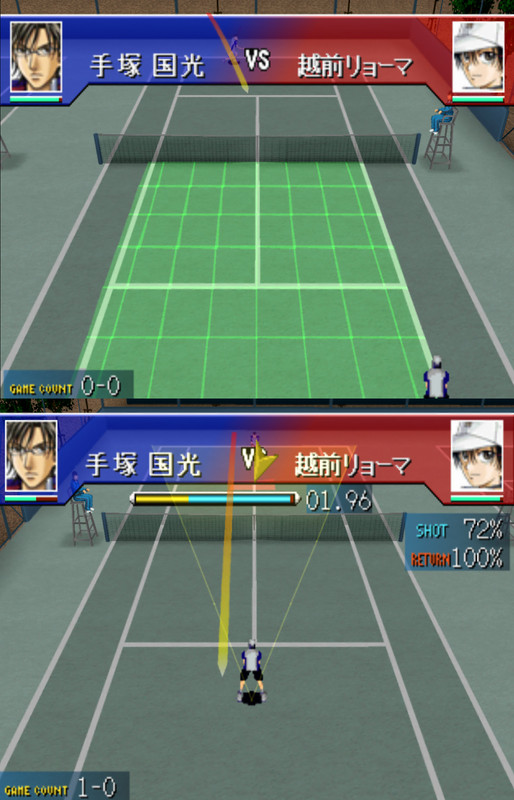 Konami's Prince of Tennis, PSX
Konami's Prince of Tennis, PSX Namco's World Court.
Namco's World Court.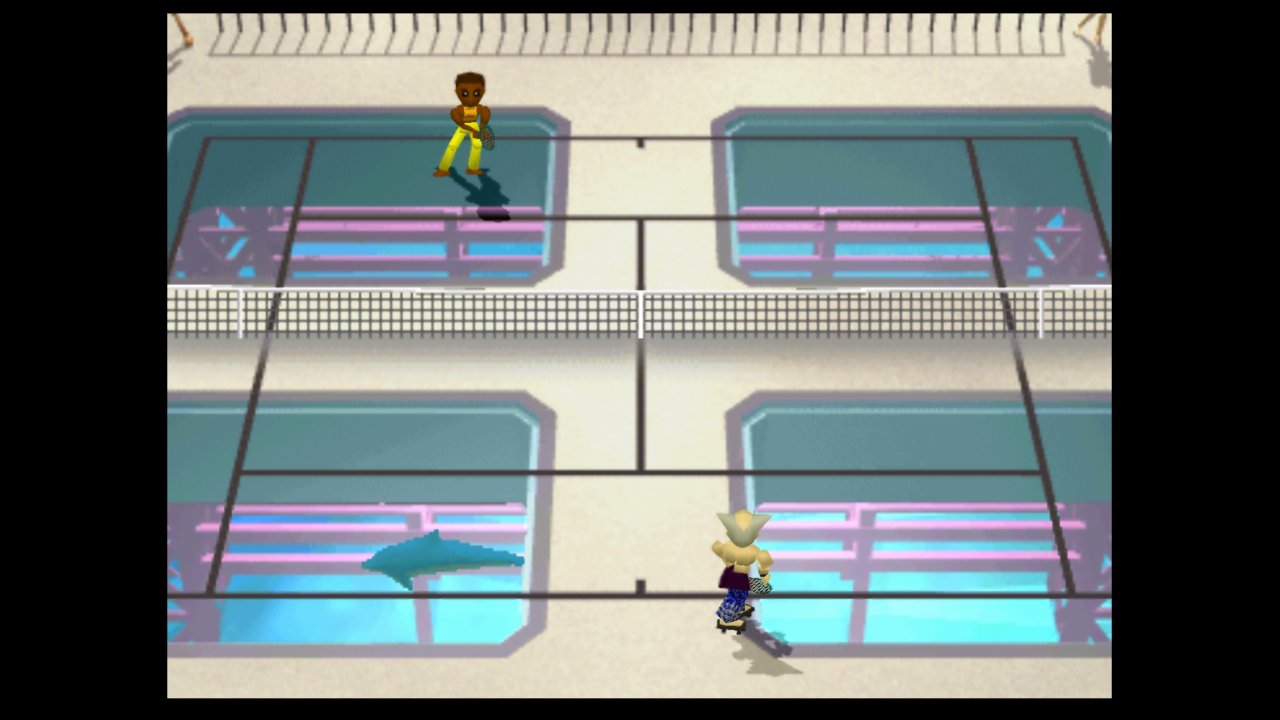 Heihachi Mishima is not dead. He just got fed up of fighting, and went to play Tennis instead.
Heihachi Mishima is not dead. He just got fed up of fighting, and went to play Tennis instead.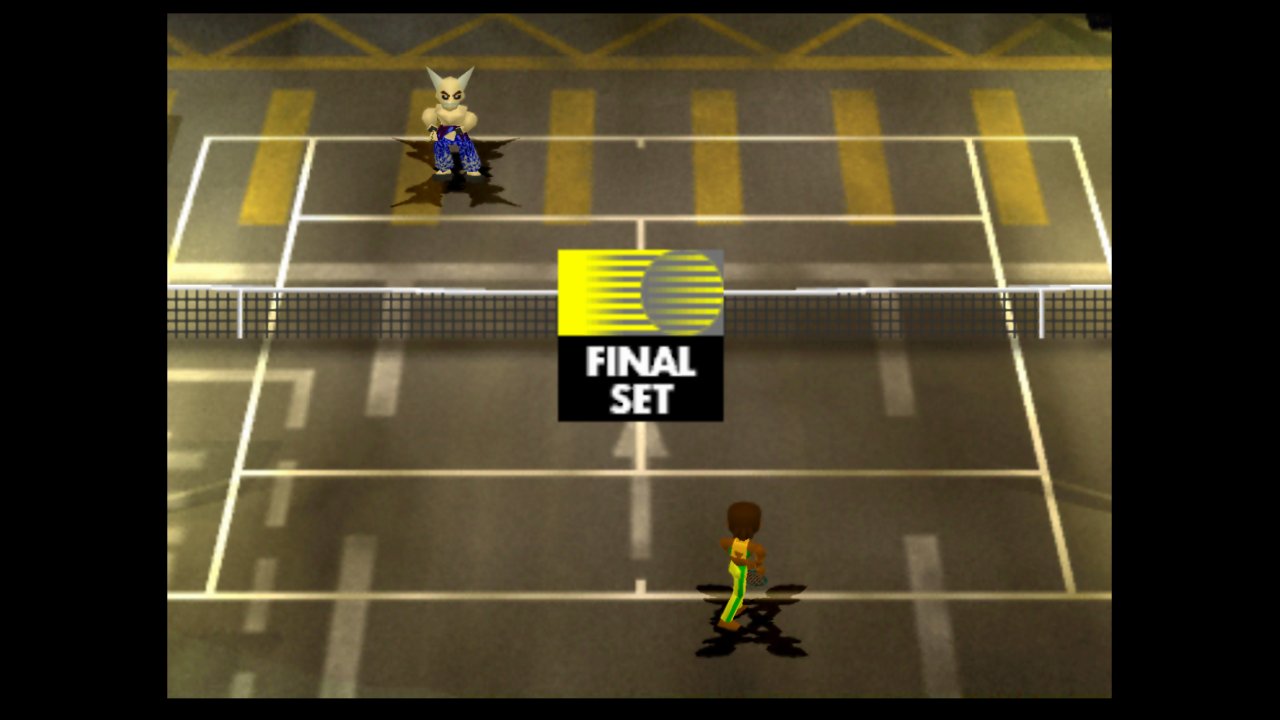 If that other guy looks familiar, it's because he is. That's Eddy Gordo, every button masher's best friend.
If that other guy looks familiar, it's because he is. That's Eddy Gordo, every button masher's best friend. Pakistan, circa 2030. The elite have blocked the roads so they can play some tennis.
Pakistan, circa 2030. The elite have blocked the roads so they can play some tennis.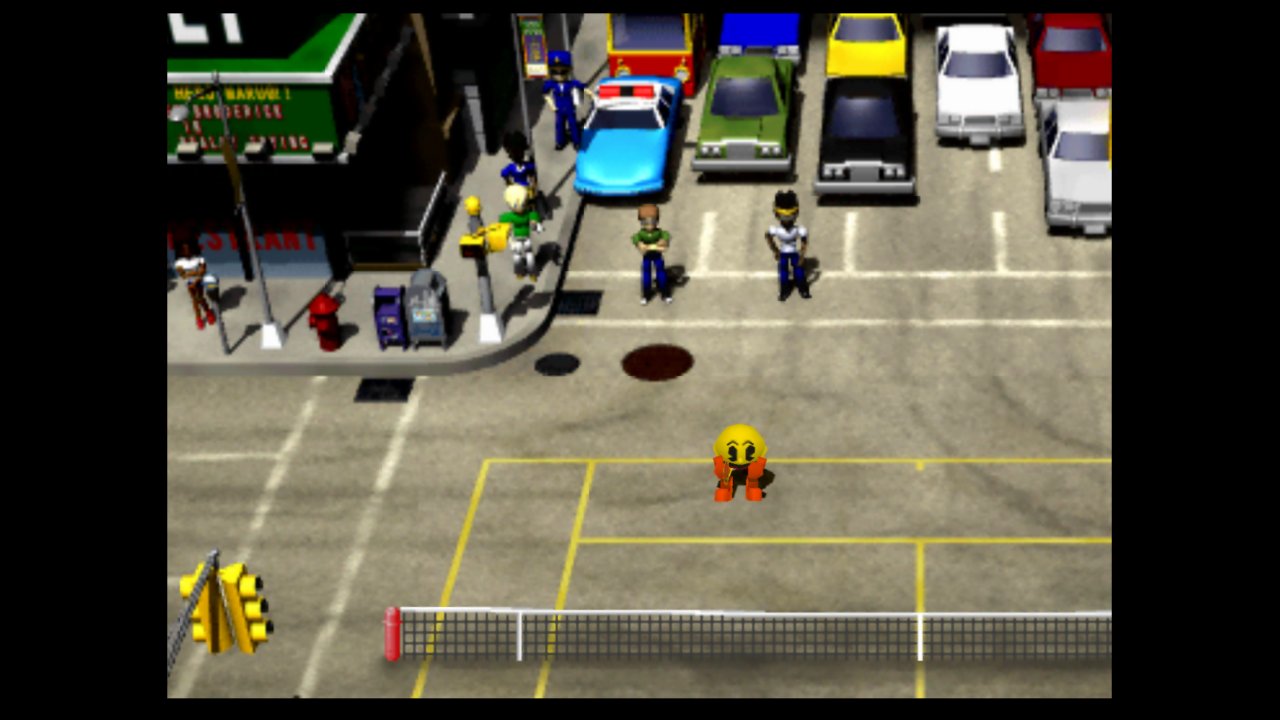 Police commissioner Pac Man got word that some people were playing Tennis on his roads, of course he also had to join in, it was his civic duty. Damn the people and their obligations.
Police commissioner Pac Man got word that some people were playing Tennis on his roads, of course he also had to join in, it was his civic duty. Damn the people and their obligations.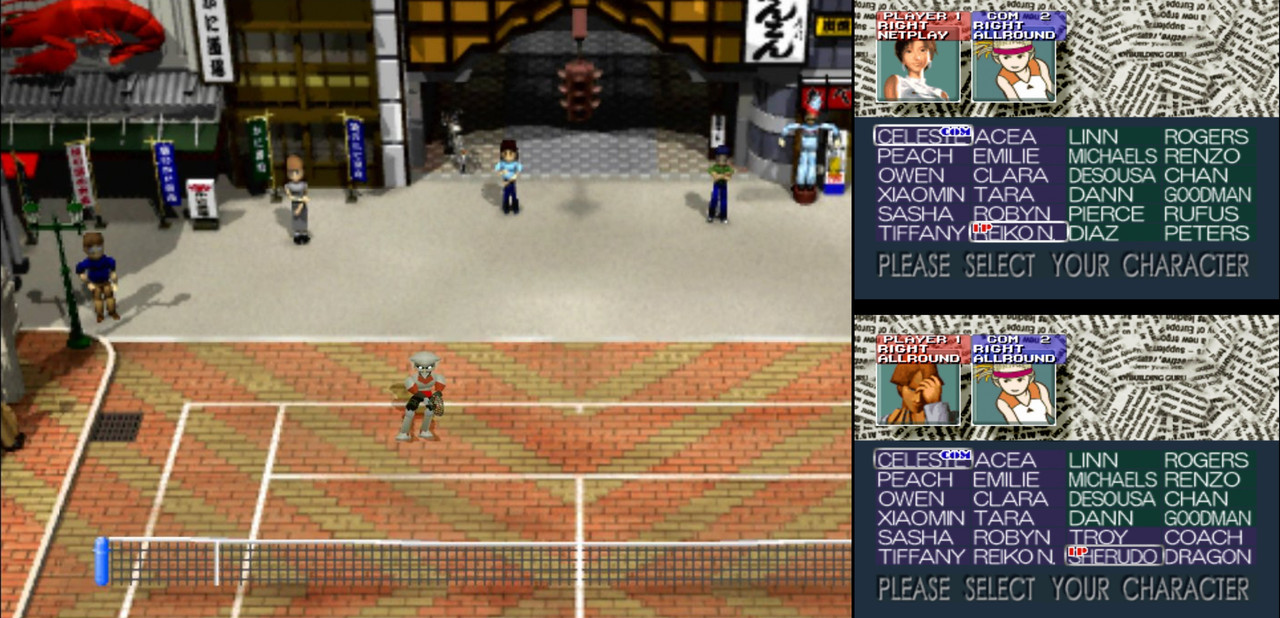 A brief overview
A brief overview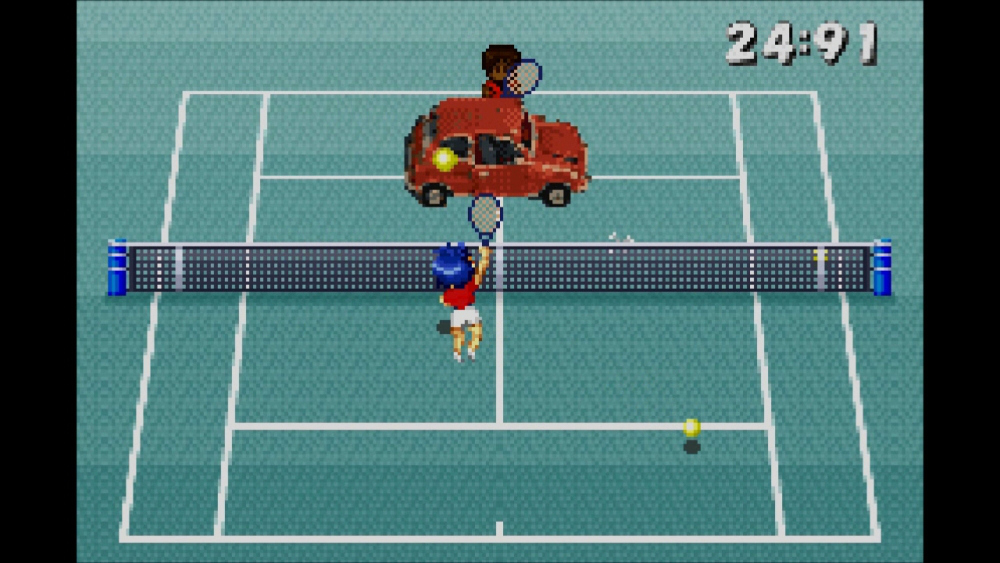 One stage has a gimmick, a car may pass every now and then
One stage has a gimmick, a car may pass every now and then
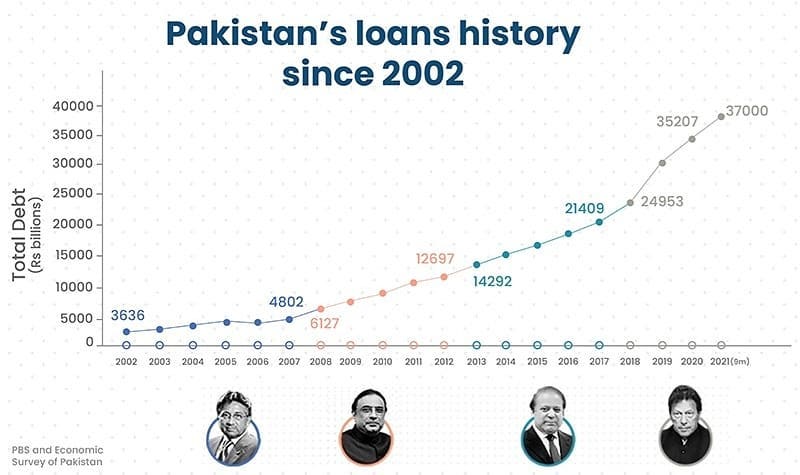
 Worse than almost every one of its 77 year history, in fact the only other time Pakistan had inflation like this, was when it split in two, and Bangladesh went its own way. The next 2 years had similar figures, but that was in the midst of a war, and a loss of various valuable industries. This time, there is no war, only a cavalcade of buffoons running the country.
Worse than almost every one of its 77 year history, in fact the only other time Pakistan had inflation like this, was when it split in two, and Bangladesh went its own way. The next 2 years had similar figures, but that was in the midst of a war, and a loss of various valuable industries. This time, there is no war, only a cavalcade of buffoons running the country. Of course, the nation has not grown as expected, either. Pakistan always cycles between periods of artificial (cooked) growth – the booms – and the bust, negative growth or contraction. Pakistan has been struggling with boom-and-bust cycles for decades, leading to 22 IMF bailouts since 1958. Currently, the IMF is the fifth-largest debtor, owing $6.28 billion as of July 11, according to the lender's data.
Of course, the nation has not grown as expected, either. Pakistan always cycles between periods of artificial (cooked) growth – the booms – and the bust, negative growth or contraction. Pakistan has been struggling with boom-and-bust cycles for decades, leading to 22 IMF bailouts since 1958. Currently, the IMF is the fifth-largest debtor, owing $6.28 billion as of July 11, according to the lender's data. Things are so bad, that almost everyone that can, is trying to leave. Yours truly is stuck here till the end sadly, perhaps he will be buried a ways down the road someday, if he is not taken by a flood, and perhaps many years later his grave will also become part of one of their golf courses, as is the way. When that happens, I will be sure to haunt them.
Things are so bad, that almost everyone that can, is trying to leave. Yours truly is stuck here till the end sadly, perhaps he will be buried a ways down the road someday, if he is not taken by a flood, and perhaps many years later his grave will also become part of one of their golf courses, as is the way. When that happens, I will be sure to haunt them.